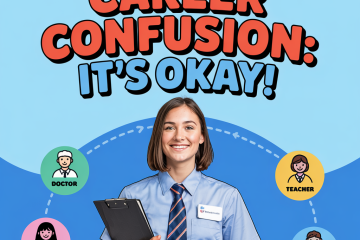Using Informational Interviews to Test Drive Career Ideas Before Committing

Exploring potential careers can feel abstract. Reading job descriptions online only tells you so much. A powerful tool for deeper career research is the informational interview. It’s not a job interview; it’s a brief conversation with someone working in a field that interests you, designed simply to gather information and advice. Asking good informational interview questions lets you “test drive” career ideas and gain realistic insights before committing time and money to a specific path. Discover potential career paths and connect with professionals on Cirkled In.
What is an Informational Interview? (More Than Asking for a Job)
An informational interview is a short (usually 20-30 minute) conversation where you ask questions to learn about someone’s career path, their industry, and their day-to-day work reality. The primary goal is learning, not directly asking for a job or internship (though connections made can sometimes lead to opportunities later). It’s a low-pressure way to explore career paths.
Why Use Them to “Test Drive” Careers?
Reading about a career is one thing; hearing about it directly from someone living it is another. Informational interview benefits for career exploration include:
- Realistic Insights: Get an insider’s view of the pros and cons of a job or field.
- Day-to-Day Reality: Understand what the actual work involves beyond the job title.
- Skill Requirements: Learn what skills are truly essential for success.
- Career Path Variations: Discover different ways people entered the field.
- Industry Trends: Hear about current challenges and future opportunities.
- Personal Fit: Gauge if the work environment and tasks align with your interests and personality. It helps you test drive careers conceptually.
It’s invaluable research that goes beyond online searches.
Finding People to Interview
Think about who you could talk to:
- Personal Network: Family friends, parents’ colleagues, neighbors. Start with people you know or who know people you know.
- School Connections: Teachers, counselors, alumni from your high school or potential colleges (LinkedIn is great for finding alumni.
- LinkedIn: Search for people with job titles or at companies that interest you. Look for shared connections or alumni status.
- Professional Associations: Websites for industry groups sometimes have member directories or contacts.
- Guest Speakers: If someone speaks at your school or a virtual event, follow up if their field interests you.
Reaching Out: The Request Email/Message
Keep your request brief, professional, and respectful of their time.
- Subject Line: Clear and concise (e.g., “Informational Interview Request – Student Interested in [Field]”).
- Introduction: Briefly say who you are (student, school, year) and how you found them (e.g., “via LinkedIn,” “recommended by [Mutual Connection]”).
- The Ask: Clearly state you’re exploring careers in [Field] and would appreciate 20-30 minutes of their time for an informational interview to learn from their experience. Emphasize you are seeking advice, not a job.
- Flexibility: Offer to meet at their convenience (virtual call is often easiest).
- Professional Closing: Thank them for their consideration.
Be prepared that not everyone will have time, but many professionals enjoy helping students.
Preparing Smart Informational Interview Questions
Don’t ask questions easily found online (like “What does your company do?”). Focus on their personal experience and insights. Good informational interview questions include:
- Can you describe your career path and how you got to your current role?
- What does a typical day or week look like for you?
- What do you enjoy most about your work? What are the biggest challenges?
- What skills are most essential for success in this field?
- What advice would you give to a student interested in pursuing this career?
- What trends are you seeing in the industry?
- What resources (books, websites, organizations) would you recommend for learning more?
- Is there anyone else you suggest I speak with? (A great way to expand your network!)
Prepare 5-7 key questions, but be ready to adapt based on the conversation.
During the Interview: Listening is Key
- Be Punctual and Prepared.
- Briefly Introduce Yourself and thank them for their time.
- Lead with Your Questions, but let the conversation flow naturally.
- Listen More Than You Talk. Your goal is to learn from them.
- Take Notes (but maintain eye contact on video calls).
- Be Mindful of Time. Stick to the agreed-upon time limit unless they offer to extend.
- Ask for Connections (Optional): If the conversation went well, politely ask, “Is there anyone else you think would be helpful for me to talk to?”
After the Interview: Follow Up and Reflect
- Send a Thank You Note: Within 24 hours, send a personalized thank-you email reiterating your appreciation and mentioning something specific you learned. This is crucial networking for students etiquette.
- Connect on LinkedIn (Optional): Send a personalized connection request referencing your conversation.
- Reflect: What did you learn? Did it confirm or change your interest in the field? What are your next steps for career research?
Final Thought: Ask Questions, Gain Clarity
Informational interviews are a low-stakes, high-reward way to explore career paths. Don’t be afraid to reach out politely. Preparing good informational interview questions and listening carefully to the answers provides invaluable insights that help you test drive careers and make more informed decisions about your future. Explore career options and build your network by visiting Cirkled In.
Need more tips on college applications, scholarships, or just how to survive this whole process? Cirkled In has your back—check out Cirkled In resources to help you through every step of your college journey!



2 Comments
david cory · September 17, 2025 at 10:21 am
great
Amy S · September 17, 2025 at 12:26 pm
Glad you thought so, David—sometimes ‘great’ says it all 😄🙌